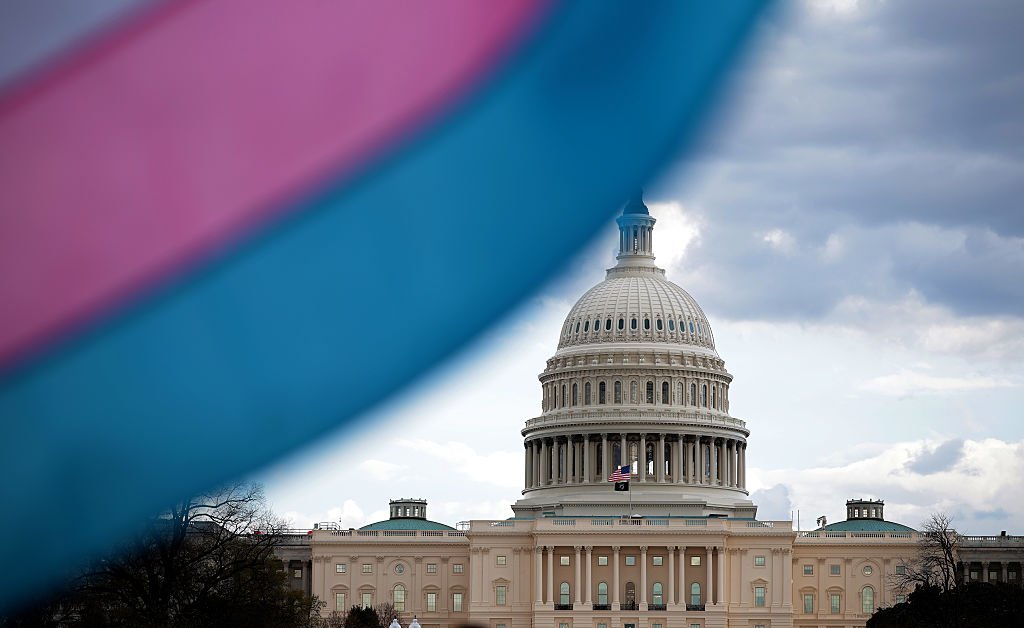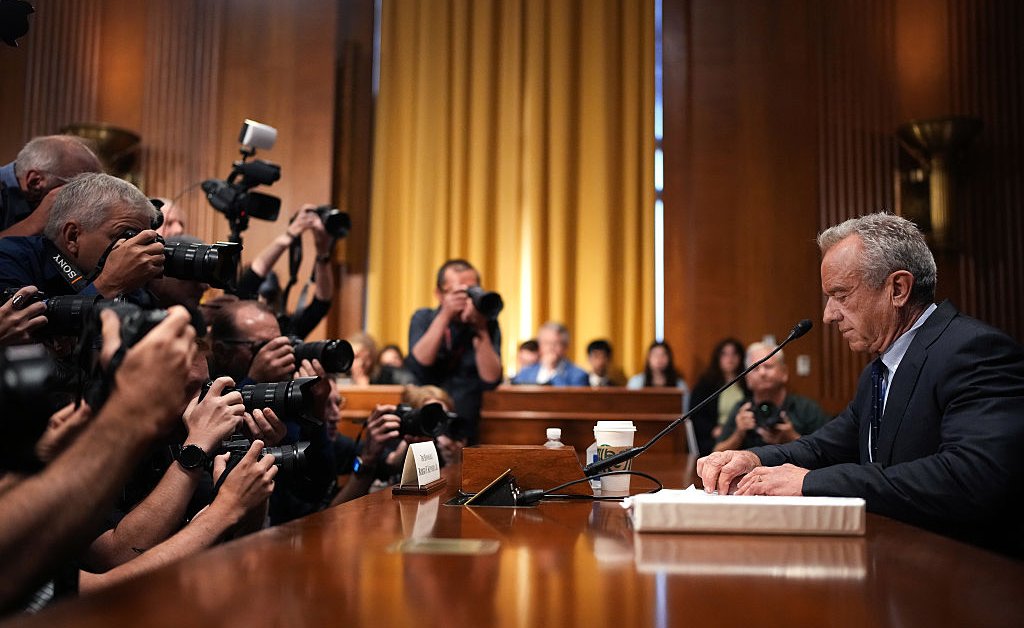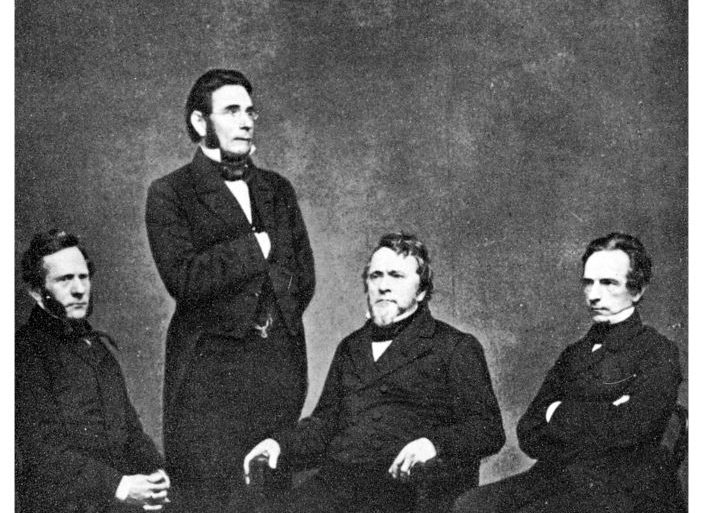Conservative Christian political organizations, including the Heritage Foundation and Family Research Council are celebrating the Supreme Court’s June 18 decision in U.S. v. Skrmetti. The case upheld a Tennessee law banning gender-affirming healthcare—including hormone treatments and surgical interventions—for transgender minors.
Various conservative Christian leaders have similarly claimed that the high Court’s ruling affirms the scientific and divine reality of biological sex. The Southern Baptist Convention’s Ethics and Religious Liberty Commission, for example, issued a press release describing Tennessee’s law as “built upon the framework of biblical convictions” defending “the historical and biological definition of sex.” In an amicus brief filed for this case last spring, the U.S. Conference of Catholics Bishops put it more directly: religious opposition to gender affirming healthcare is “long-held and universally applied.”
But history tells a different story. Reactions from Christian leaders to gender-affirming healthcare were far more diverse in the past. There was no historical consensus on the topic, as far-right conservative Christians today claim. And, in fact, some leaders from denominations that vocally oppose such care in the current moment once chose to support the decisions of doctors and transgender patients who pursued medical interventions.
We can see how religious reactions to gender-affirming healthcare have become more conservative by looking at how various Christian leaders responded to the opening of the Gender Identity Clinic at Johns Hopkins Hospital in 1966, compared to their opinions of that same clinic (and others like it) today.
The Hopkins clinic was the first of its kind in the U.S. to offer gender-affirming healthcare for transgender adults and children. When it opened, a range of clergy, including from conservative traditions, supported it. Fast forward to today—on the heels of a decades-long conservative family values movement—and that very same clinic is now being vilified by conservative religious leaders. The pioneering Johns Hopkins clinic is cited in the Tennessee bill at the center of the Supreme Court case as a site of child abuse carried out by the psychologist who was one of its first directors, Dr. John Money.
Read More: SCOTUS’ Blow to Trans Rights Is History Repeating Itself
News of the clinic first broke in 1966 with a story published in The New York Times. Newspapers across the country followed suit, describing the medical techniques taking place there—procedures that were then called “sex reassignment surgery” or “sex change operations.”
It is perhaps surprising that the clinic opened at a time when the U.S. was two decades into its Cold War mission that positioned the traditional nuclear family—structured around heterosexuality and gender difference—as what made America superior to the USSR, which by contrast treated men and women alike as mere workers in the Soviet state. Yet, the clinic appeared at a time when cracks were becoming more visible in America’s idealized traditional family façade. Movements for women’s liberation and gay and lesbian rights were newly afoot and fighting for greater social acceptance and legal protections. The modest gains these movements had made by 1966 would only escalate in the coming years, before triggering a conservative backlash. The Hopkins clinic fit squarely into the desire of these movements to offer Americans alternatives to the rigid gender roles and compulsory heterosexuality of the Cold War era.
The Hopkins clinic also opened its doors at a time in the mid-20th century that historians have called the “golden age of medicine.” Several important scientific advancements in medical treatments had recently been made, and (especially white, male) doctors then enjoyed widespread respect as a result. By the late 1960s and throughout the 1970s, some areas of medicine, such as psychiatry, would face increasing criticism, including from social movements representing women and LGBT people. But in 1966, Americans were, for the most part, still extremely trusting of medical institutions and the expertise of doctors, especially at top medical schools like Johns Hopkins.
In this atmosphere, instead of opposing the clinic, conservative Christian denominations were largely silent about its opening. Denominations like the Southern Baptist Convention, the Lutheran Church-Missouri Synod, and the Roman Catholic Church did not issue official statements condemning the medical care the clinic offered, as they have done in recent years.
To the contrary, some religious leaders supported transgender people’s access to gender-affirming care. For example, the President of the Maryland Council on Churches and an Episcopal priest, Reverend John N. Peabody, said publicly that gender affirmation surgeries, if used responsibly, “would be in accord with Christian teachings.” “How else,” he wondered, “can these persons hope to attain any individual happiness or find any acceptance at all in our society?”
Peabody’s remarks appeared in an article in the Baltimore Sun titled, “Clerics Approve of Sex-Change Operation.” The article queried 12 other Baltimore clergy, representing Lutheran, Baptist, Presbyterian, and Methodist churches. Though a small sample, their reactions were notably compassionate towards transgender people and supportive of the doctors who provided their care. A Baptist pastor affirmed simply, “I’m all for it. I see no moral objection to it.”
To be sure, there were critics of Johns Hopkins’ Gender Identity Clinic in 1966, but the opposition was mostly contained within professional medical circles or scattered among newspaper editorials. A national, highly organized conservative family values movement did not mobilize until the early-to-mid 1970s, in response to national political fights over gender and sexuality—in particular, those catalyzed by opposition to legal abortion and the proposed Equal Rights Amendment to the U.S. Constitution. As a result, the Johns Hopkins Clinic and other university and private hospitals that offered similar healthcare to trans people in the late 1960s and early 1970s opened without facing widespread opposition.
But soon, conservative Christian leaders and activists would align with conservative politicians, mostly in the GOP, to form what today we recognize as the Christian Right. Gender and sexuality were central to their cause, which advocated that Christian men and women were biologically and socially distinct, intended to complement one another in heterosexual and procreative marriages. This united evangelical Protestant and Catholic activists who shared this view.
At its core, the “pro-family” movement which began in the mid-1970s was an anti-trans articulation of the immutability of binary sex. But conservative activists at the time largely conflated trans people with “homosexuals,” who were the official targets of many of their early campaigns.
The Gender Identity Clinic at Johns Hopkins would shut down in 1979, just as the Christian Right was gaining momentum and about to help send their chosen presidential candidate, conservative Republican Ronald Reagan, to the White House the following year. The hospital would not offer gender-affirming healthcare for nearly 40 years, until its Center for Transgender Health opened in 2017, joining numerous other clinics that were in operation across the country.
Read More: Trump’s Anti-Trans Attacks Won’t Stop With Us

In the 21st century, visibility and acceptance of transgender people has grown. At the same time, conservatives have expanded their agenda to explicitly target trans issues. The Southern Baptist Convention, for example, released its first resolution opposing transgender identity in 2014, the same year that Time Magazine published its now famous cover story on the “transgender tipping point.” Though the Roman Catholic Church spoke out against the social construction of gender in the 1990s, its first statement opposing transgender identity came in 2019.
Although today’s conservative activists claim that religion has always been on their side in opposing transgender identity and rights, the history of the Hopkins clinic offers a corrective. Religious opposition to gender-affirming healthcare was not inevitable nor universal. In fact, it is a relatively modern development in the unique American landscape that now blends conservative politics with conservative Christianity.
Dr. Kelsy Burke is a Professor of Sociology at the University of Nebraska-Lincoln and an Affiliate Scholar with the Public Religion Research Institute (PRRI). They are currently writing a book on the origins and evolution of the anti-transgender movement in the United States.
Made by History takes readers beyond the headlines with articles written and edited by professional historians. Learn more about Made by History at TIME here. Opinions expressed do not necessarily reflect the views of TIME editors.








